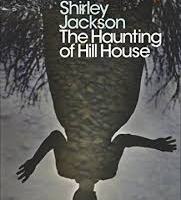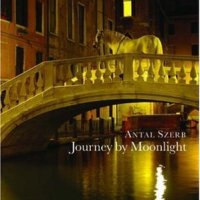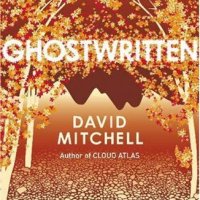I found this interesting excerpt online. It’s taken from HP Lovecraft’s essay Supernatural Horror in Literature.
He’s rather scathing of the Carnacki stories, which I’m rather fond of. Oh well. I think the professional occultism of the Carnacki stories is key to their charm personally, but I’ll leave further comment on that until I write up the stories themselves.
In the meantime, here’s the man from Providence himself:
Of rather uneven stylistic quality, but vast occasional power in its suggestion of lurking worlds and beings behind the ordinary surface of life, is the work of William Hope Hodgson, known today far less than it deserves to be. Despite a tendency toward conventionally sentimental conceptions of the universe, and of man’s relation to it and to his fellows, Mr. Hodgson is perhaps second only to Algernon Blackwood in his serious treatment of unreality. Few can equal him in adumbrating the nearness of nameless forces and monstrous besieging entities through casual hints and insignificant details, or in conveying feelings of the spectral and the abnormal in connection with regions or buildings.
In The Boats of the Glen Carrig (1907) we are shown a variety of malign marvels and accursed unknown lands as encountered by the survivors of a sunken ship. The brooding menace in the earlier parts of the book is impossible to surpass, though a letdown in the direction of ordinary romance and adventure occurs toward the end. An inaccurate and pseudo-romantic attempt to reproduce eighteenth-century prose detracts from the general effect, but the really profound nautical erudition everywhere displayed is a compensating factor.
The House on the Borderland (1908) — perhaps the greatest of all Mr. Hodgson’s works — tells of a lonely and evilly regarded house in Ireland which forms a focus for hideous otherworld forces and sustains a siege by blasphemous hybrid anomalies from a hidden abyss below. The wanderings of the Narrator’s spirit through limitless light-years of cosmic space and Kalpas of eternity, and its witnessing of the solar system’s final destruction, constitute something almost unique in standard literature. And everywhere there is manifest the author’s power to suggest vague, ambushed horrors in natural scenery. But for a few touches of commonplace sentimentality this book would be a classic of the first water.
The Ghost Pirates (1909), regarded by Mr. Hodgson as rounding out a trilogy with the two previously mentioned works, is a powerful account of a doomed and haunted ship on its last voyage, and of the terrible sea-devils (of quasi-human aspect, and perhaps the spirits of bygone buccaneers) that besiege it and finally drag it down to an unknown fate. With its command of maritime knowledge, and its clever selection of hints and incidents suggestive of latent horrors in nature, this book at times reaches enviable peaks of power.
The Night Land (1912) is a long-extended (538 pp.) tale of the earth’s infinitely remote future-billions of billions of years ahead, after the death of the sun. It is told in a rather clumsy fashion, as the dreams of a man in the seventeenth century, whose mind merges with its own future incarnation; and is seriously marred by painful verboseness, repetitiousness, artificial and nauseously sticky romantic sentimentality, and an attempt at archaic language even more grotesque and absurd than that in Glen Carrig.
Allowing for all its faults, it is yet one of the most potent pieces of macabre imagination ever written. The picture of a night-black, dead planet, with the remains of the human race concentrated in a stupendously vast metal pyramid and besieged by monstrous, hybrid, and altogether unknown forces of the darkness, is something that no reader can ever forget: Shapes and entities of an altogether non-human and inconceivable sort — the prowlers of the black, man-forsaken, and unexplored world outside the pyramid — are suggested and partly described with ineffable potency; while the night-land landscape with its chasms and slopes and dying volcanism takes on an almost sentient terror beneath the author’s touch. Midway in the book the central figure ventures outside the pyramid on a quest through death-haunted realms untrod by man for millions of years — and in his slow, minutely described, day-by-day progress over unthinkable leagues of immemorial blackness there is a sense of cosmic alienage, breathless mystery, and terrified expectancy unrivalled in the whole range of literature. The last quarter of the book drags woefully, but fails to spoil the tremendous power of the whole. Mr. Hodgson’s later volume, Carnacki, the Ghost-Finder, consists of several longish short stories published many years before in magazines. In quality it falls conspicuously below the level of the other books. We here find a more or less conventional stock figure of the “infallible detective” type — the progeny of M. Dupin and Sherlock Holmes, and the close kin of Algernon Blackwood’s John Silence — moving through scenes and events badly marred by an atmosphere of professional “occultism.” A few of the episodes, however, are of undeniable power, and afford glimpses of the peculiar genius characteristic of the author.
I love Lovecraft dearly. A flawed writer, but one who deserves his recent and very belated recognition by Penguin Modern Classics. At his worst, his writing was racist and overwrought. At his best, it was weird in the finest sense of that word. I’ll write about him more another day, though I have an adolescent fondness for him which makes impartiality difficult.











